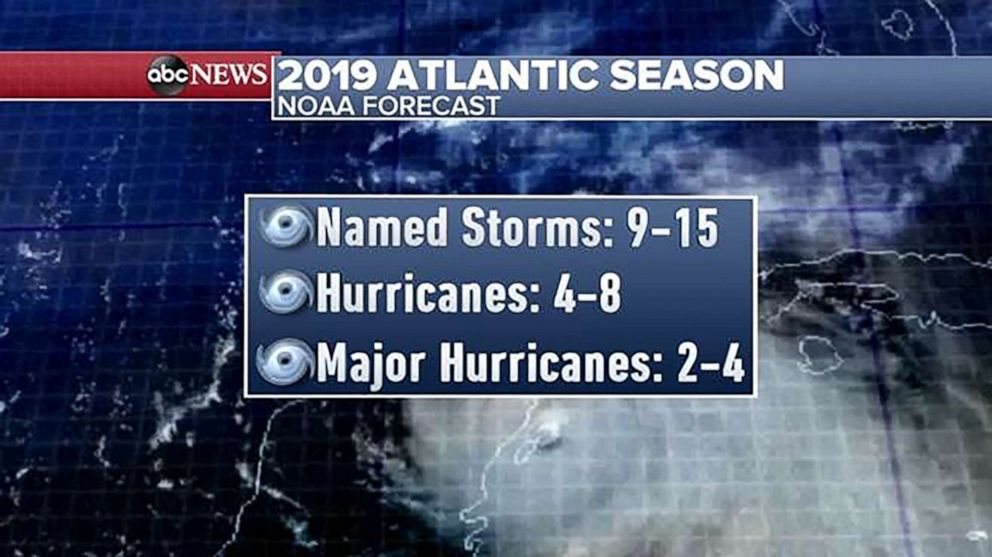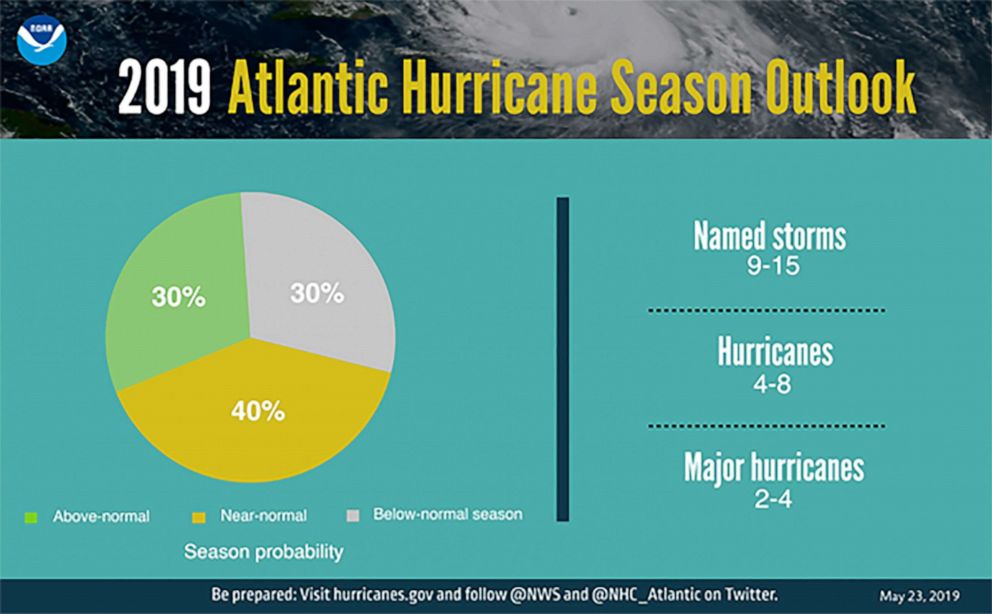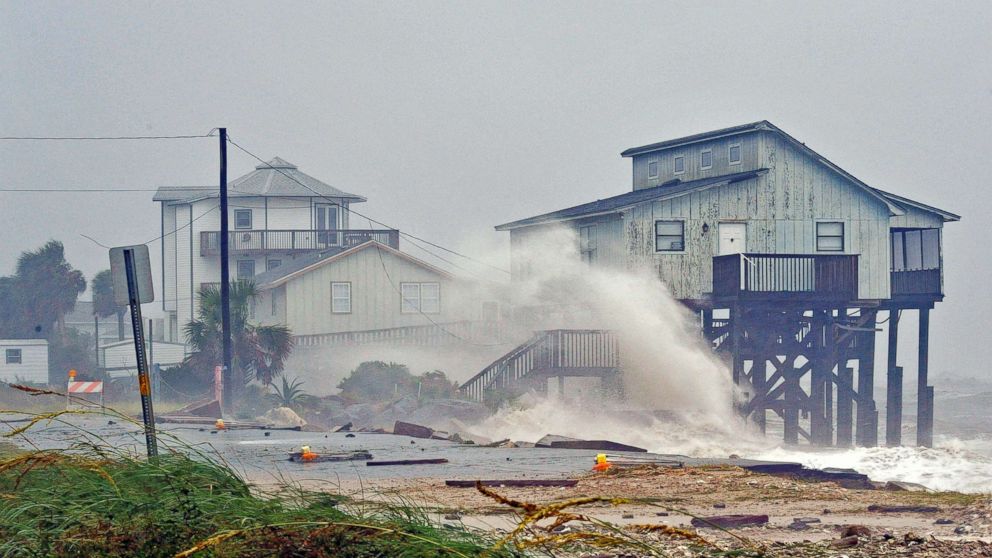NOAA forecasts near-normal 2019 Atlantic hurricane season
Conditions in the sea and atmosphere are most likely to produce a near-normal Atlantic hurricane season this year, according to a new forecast from the National Oceanic and Atmospheric Administration.
The federal agency on Thursday released its forecast for the 2019 Atlantic hurricane season, which officially begins June 1 and ends on Nov. 30.
There is a 40% likelihood of near-normal activity during the period when hurricanes form in the Atlantic Ocean. The chances of an above-normal season or a below-normal season are both 30%, according to NOAA.

For the entire Atlantic hurricane season, NOAA forecasts there will be a total of nine to 15 named storms (39 mph or higher winds), of which four to eight could become hurricanes (74 mph or higher winds), including two to four major hurricanes (111 mph or higher winds). NOAA warned that the outlook is for overall season activity and doesn't forecast landfall.
An average hurricane season produces 12 named storms, of which six become hurricanes, including three major hurricanes.

Seasonal forecasters considered the competing climate factors at play for the this year's outlook. The ongoing El Nino, a warming of the equatorial Pacific Ocean that increases wind shear over the Atlantic Ocean and the Caribbean Sea, is expected to persist and suppress the intensity of the hurricane season. Meanwhile, the warmer-than-average sea-surface temperatures in the tropical Atlantic Ocean and Caribbean Sea combined with an enhanced West African monsoon season will counter El Nino's effects and favor increased hurricane activity, according to NOAA, which falls under the U.S. Department of Commerce.
“With the 2019 hurricane season upon us, NOAA is leveraging cutting-edge tools to help secure Americans against the threat posed by hurricanes and tropical cyclones across both the Atlantic and Pacific,” Secretary of Commerce Wilbur Ross said in a statement Thursday. “Throughout hurricane season, dedicated NOAA staff will remain on alert for any danger to American lives and communities.”
ABC News' Max Golembo contributed to this report.




